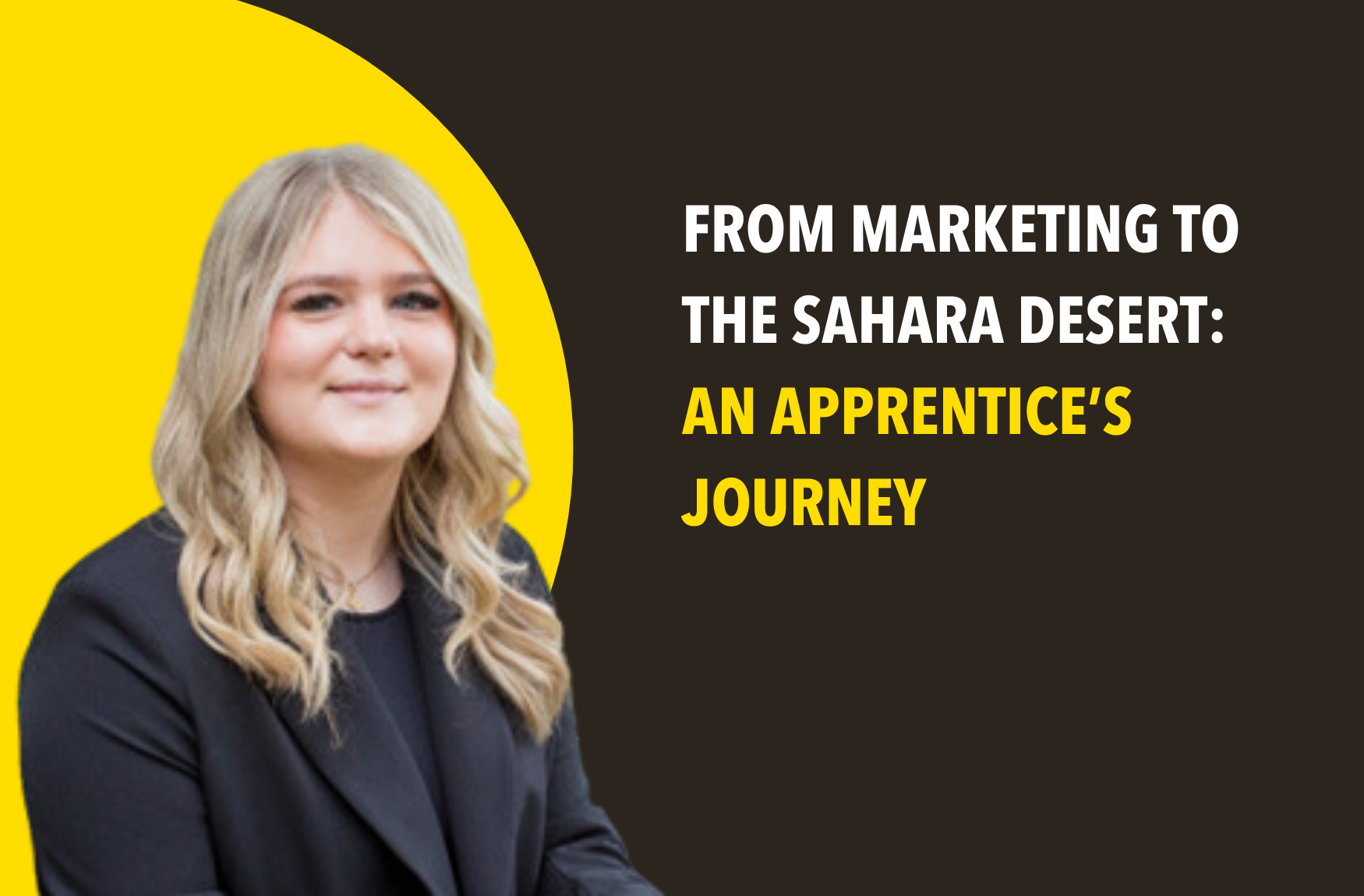5TH SEP 2023
Employer Guide to the Apprenticeship Journey


As you embark on the apprenticeship journey, it's crucial for businesses to simplify and optimise the process to ensure a seamless transition so both employer and apprentice benefit. We've outlined our employer's apprenticeship journey from the first steps, end-point assessment, and completion at GC.
Apprenticeships are an affordable training option for many organisations no matter the size or whether you're looking to recruit or upskill existing staff. In today's rapidly changing and evolving job market, employers are continuously seeking innovative ways to secure skilled and motivated talent and being able to provide training options for their staff.
As you embark on the journey, it's crucial to simplify and optimise the process to ensure a seamless transition so both employer and apprentice benefit. We've outlined our employer's apprenticeship journey from the first steps, end-point assessment, and completion at GC.
Identifying business needs
The first step to a successful apprenticeship is identifying your business skills needs to align with your goals and objectives. Whether you are looking to recruit a new apprentice or have existing members of staff wishing to advance their skills with the help of an apprenticeship, we'll be able to help you find the best option that works for you and your company.
Digital Apprenticeship Service (DAS) set up
We'll help guide you through the setup of your Digital Apprenticeship Service account. The DAS serves as a central hub for employers, training providers, and apprentices and provides a range of digital tools and resources to support the end-to-end apprenticeship journey. Here you're able to manage funding and stay up to date with the recruitment process.
Recruitment
If you're looking to recruit an apprentice, we have a strong pool of candidates to choose from, and we can help you find the best talent for your business. Additionally, we have recruitment support offered from start to finish, with many channels to promote the apprenticeship vacancy.
Funding
There are several government funding options available to pay for apprenticeship training. We will be able to support you throughout this process whether your organisation is a levy payer or not.
For large organisations, apprenticeship training can be funded through the Apprenticeship Levy, a small tax levied on UK (United Kingdom) employers with a salary bill of over £3 million, with 0.5% of the bill contributed to the fund. This can be spent on apprenticeship training for new and existing staff where the money will stay in the account for 24 months before it's returned to the government. Planning earlier can make the most of this money so employers can make the most of this funding.
For small businesses with a salary bill of less than £3 million, then you don't pay anything into the Apprenticeship Levy. Instead, you only pay for 5% of your apprentice's training with the rest paid for by the Government.
Plus, employers are not required to pay National Insurance contributions for apprentices under the age of 25.
"On-the-job" training
Training that takes place with the employer is referred to as on-the-job training. This usually involves hands-on learning experiences, with the apprentice taking on a set of responsibilities aligned with their apprenticeship standard.
"Off-the-job" training
Training which is received by the apprentice within their practical period, during the apprentice’s normal working hours, for the purpose of achieving the knowledge, skills and behaviours of the approved apprenticeship is referred to as off-the-job training. It is an essential component and a legal requirement for an apprenticeship. This includes attending lectures, assessments, workshops, and meeting their assessor trainers.
The Government requirement is that your apprentice should spend an average of 6 hours per week on off-the-job training. Depending on the apprenticeship, it can be delivered at the college or your workplace.
Enrolment & Onboarding
As an award-winning training provider, we'll fully support your apprentice to ensure a smooth start to their course, including a Familiarisation Day. This is an exciting time for both the apprentice and employer as all the planning comes to fruition.
End Point Assessment
At the end of the apprenticeship, the learner will take their End Point Assessment (EPA). It consists of various assessment modules. This validates the apprentice's competency and readiness to perform in their chosen occupation.
As part of your journey as an employer, we will work closely with you to understand your apprentice's End Point Assessment (EPA) plan and set appropriate targets. There will also be regular catch-ups with the college to review how the training is going and to ensure all parties are working to the agreed plan.
Progression
Now that the apprenticeship has been completed, we can advise you on the next steps. Whether that is specialising further or progressing through a higher apprenticeship, there's a variety of options available that can be discussed with your dedicated business consultant.
Apprenticeships at Gloucestershire College
Whether you're looking to hire an apprentice or have an existing member of staff with the potential to grow, our dedicated Employer Training & Apprenticeships team will guide you through every step of the way.












